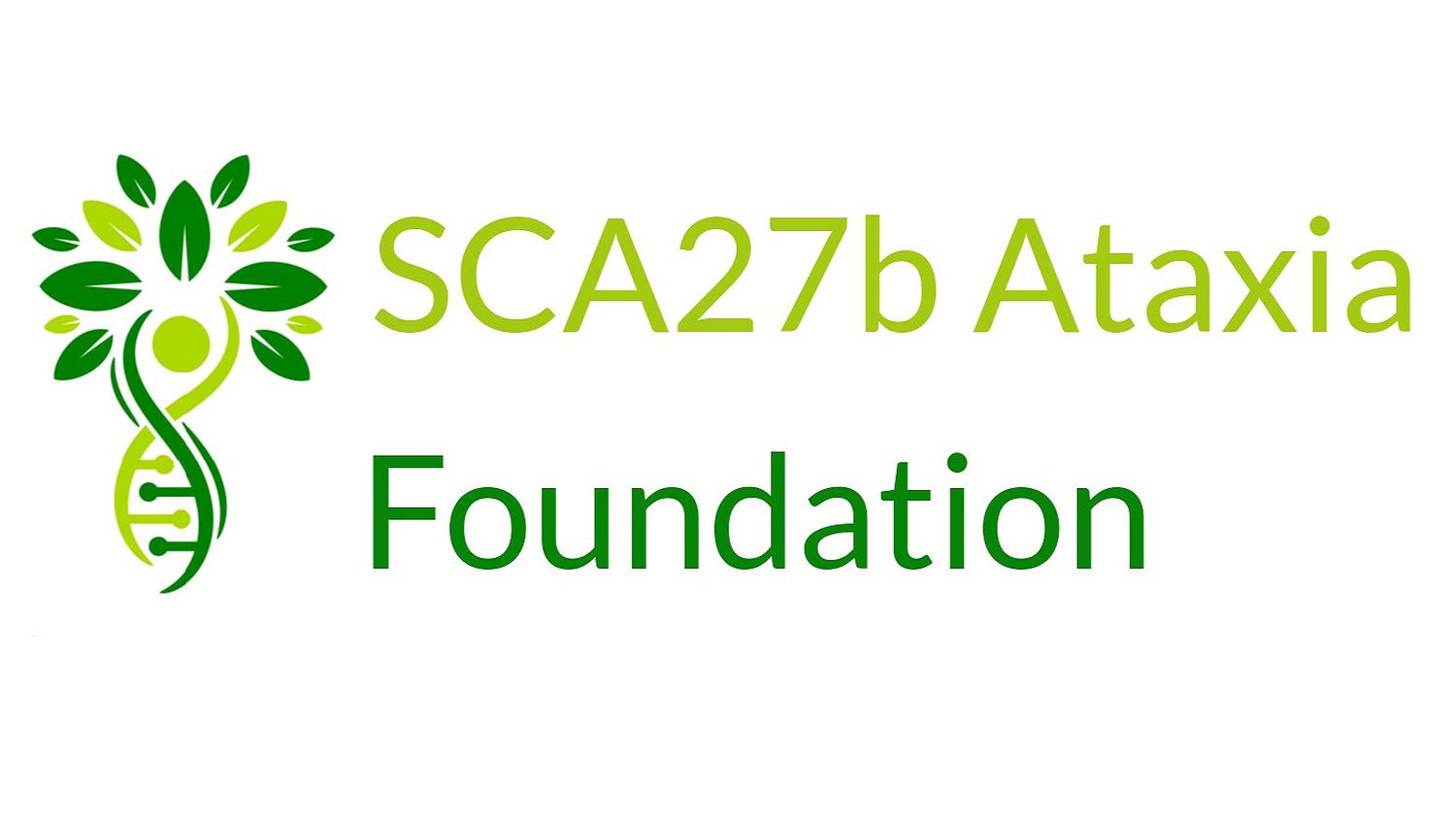Gliding into the future to beat Ataxia
Our mission is to improve the quality of life of individuals and families affected by SCA27b while promoting research and treatments for Ataxia.
Family and researchers come together at the 2023 Annual Ataxia Conference to learn more about SCA27b.
About SCA27b
SCA27b is a dominantly inherited neurodegenerative disease. It is a form of spinocerebellar ataxia (SCA) that typically begins affecting individuals in their 50’s (range 20s-80s). Affected individuals most notably suffer from a progressive loss of coordination and balance which impairs walking ability. They may experience dizziness, irregularities in eye movements (nystagmus & double vision), and slurred speech. Symptoms may be episodic and often triggered by alcohol, physical exertion, caffeine, smoking, and stress. SCA27b is caused by an intronic GAA repeat expansion in the FGF14 gene located on Chromosome 13.
It is important to note that internationally, 31% (range 15-67%) of genetically confirmed cases of SCA27b have been found in individuals without known inheritance in their families. The prevalence of sporadic cases in the U.S. is currently unknown. Lack of a family history of ataxia should not preclude an individual from being genetically screened for SCA27b.
To learn more about the genetics of SCA27b, check out the site created by genetic counselor, Leah Hardy, at University of Michigan.
The Cerebellum & Ataxia
The Cerebellum, the little brain, hosts over half of the neurons in the brain but only comprises about 10% of the brain’s volume. Spinocerebellar Ataxias (SCAs), like SCA27b, are often marked by cerebellar atrophy (shrinkage) which can be identified in MRI images.
The cerebellum is the brain’s coordination center. The genetic mutation causing SCA27b, leads to changes in the way Purkinje neurons in the cerebellum transmit signals necessary for coordinated movement.
This results in symptoms of ataxia:
Poor balance
Wide-based gait (manner of walking)
Slurring of speech
Eye movement irregularities such as nystagmus and double vision
Difficulty swallowing which can lead to aspiration of foods and drinks
Poor coordination of hands, arms, and legs
Dizziness/Vertigo
Fatigue
Episodes of ataxic symptoms may worsen with alcohol, caffeine, exercise, stress, illness, and lack of sleep
Information
Information
Links to Ataxia & SCA27b specific resources
Coming Soon
Director Mary Hogan speaking about the SCA27b Ataxia Foundation at the 2024 EuroAtaxia conference in London, UK.
Meet the Team
Advisory Board Members:
Sarah Ying, MD - Neurology
Margit Burmeister, PhD - Genetics
Bill Nye - the Science Guy
Foundation Staff:
Mary Hogan, MS, MPH - Director
Andy Nye - FB group admin
Corinna Hogan - Secretary
Board of Directors:
Jennifer Austin - Chairperson
Jack Barile, PhD - member
Eric Legg, PhD, CPRP - member
Mary Hogan & Dr. Sarah Ying manning the SCA27B table at the 2024 Annual Ataxia Conference
Mary Hogan & Bill Nye meet with key researchers who genetically identified SCA27B & are leading the charge in SCA27B research: Drs. Pellerin, Danzi, Brais, and Zuchner.











